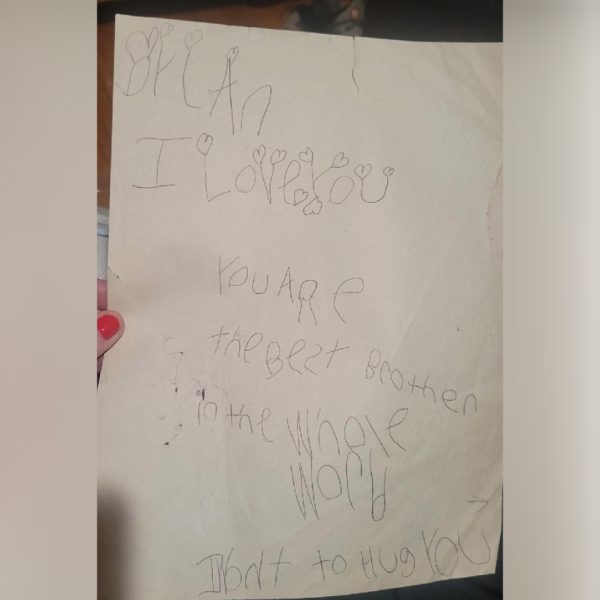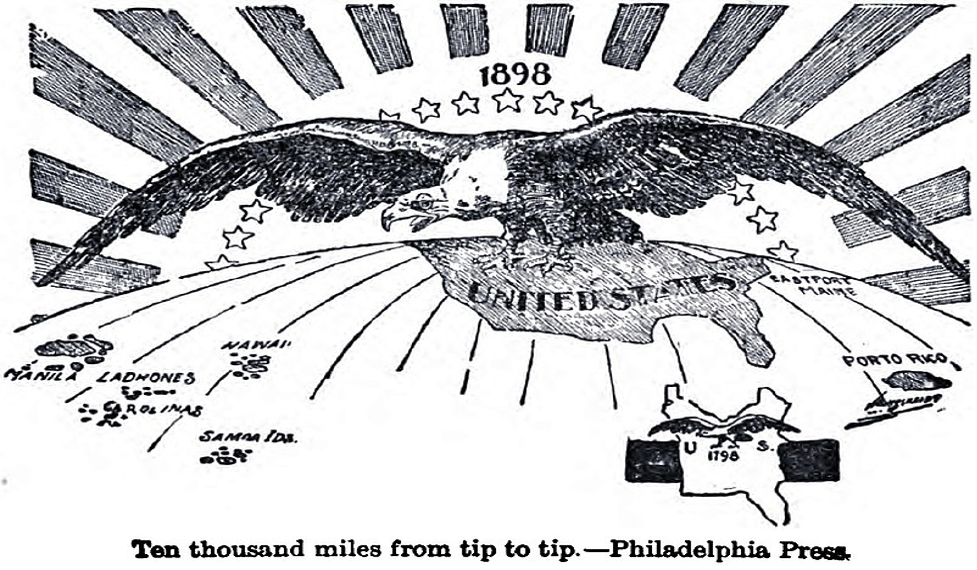When you made all those classroom art projects as a child they were probably showcased proudly on a kitchen fridge. Slowly over time, your personal art museum was covered by Domino coupons, bill reminders, Chinese takeout menus and things that were probably more relevant to the household.
Do you ever get to thinking of that Thanksgiving turkey hand, the one with the googly eyes, maybe a splash of glitter, and the red puff nose that you made in second grade? If you ask your mom where that is today, she’ll probably tell you she put it in a box in the attic of your childhood home. When you climb up there, digging through old newspapers, insulation and avoiding nails, will it irk you when you can’t find it? 
The reality is that all media and information created is usually relevant to an audience for a little while, but not forever. Something new is more important or interesting and takes place where the first thing is proudly displayed.
Humans are interesting in that we have this need to constantly create new media. Whether it’s art, paintings, music or maybe even an old musty quilt, someone had the inkling to take an idea and turn it into something more tangible. When the moment of creation passes, where does all this media go?
Sometimes a person can be tortured trying to find that one old thing that meant something to them. With the power of the internet, many people have come together to try and sort through the digital abyss to find what they yearn for. This is the interesting phenomenon of lost media.
The hub of fascination to track down relics of the past largely takes place on Reddit. Two communities, r/tip of my tongue and r/ lost media have a combined 2.5 million members. These sleuths are often tracking down old episodes of cartoons, videos that were removed from YouTube long ago, and even songs.
One song in particular is what drew me to this strange online world. Colloquially known as “Everyone Knows That,” The song has an iconic 80’s beat and could be envisioned playing via boom box on a neon-lit Miami beach.
Everyone Knows That: Lyric Video
The issue is that only 17 seconds of the song seem to exist. The origin is obscure and unknown, with any Shazam or other music search only pointing you toward fan-made edits. Over 20,000 of those fans exist in a subreddit dedicated to finding the song. The source clip came from a clunky 2000’s era website called Watzatsong, where users upload audio clips in search of the full version.
If you’re interested in the search, see this video for the full story.
This isn’t the only piece of media that’s been lost. Unfortunately, internet denizens remain tortured by the fact all things are eventually lost to entropy.
Over 50 million songs were permanently lost more recently than many may think. MySpace, for those who don’t know, was a popular precursor to contemporary social media that launched in 2003. If you ask a parent or much older sibling, they probably had one. The site peaked in 2007 with more than 300 million users.
We might take the ability for anyone to upload a song to a popular service for granted today, with applications like YouTube Music and Spotify allowing anyone to show off their work. At the time,MySpace was a big deal in its ability to do such. Some sources say that artists like My Chemical Romance and Taylor Swift gained their popularity through the site.
In 2019, MySpace decided to migrate its servers without a backup for any of the files hosted on the site. 12 years of music, around 50 million tracks, were completely lost with no way to be recovered. The Internet Archive managed to rescue about 1 million of the lost songs.
Myspace loses all music, photos and content uploaded before 2016
If you wanted to go back and listen to any of those recordings, you would need to see if the original artist kept a copy on a hard drive, or the desktop of an old Gateway computer. It might be rotting away in a basement or torn up for scrap in an E-waste landfill in Ghana.
Regardless of My Space’s poor business decisions, the music most likely would have been lost to time. Similar to how tapes, CDs and films all naturally degrade, anything on the internet is destined to the same dark fate.
The digital dark age is a perceived future where old file formats are no longer readable. Every movie, video game, song, E-book or anything created digitally was created by a program in a format to be read by other programs. As old programs become obsolete and new, more efficient ones take their place, all that digital media created in those formats is essentially lost.
The term dark age comes from the thought that future generations online would have a hard time trying to read any of our electronic documents or multimedia. This would create a whole period of digital history that’s unreadable.
One common layman terms explanation for the concept is that you would not have an easy time trying to retrieve anything from a floppy disk. Even if you could acquire the correct hardware, would your computer be able to read the Microsoft Word file format from 1995? Would it even recognize the floppy disk reader?
The real solution to digital obsolescence is constant maintenance and transitioning files to new formats year-over-year. With all the effort required, how are we deciding what should live forever online or otherwise? For a lot of lost media, the decision was already made.
“Everything you put online will be there forever,” is a common sentiment from wary elders trying to warn social-media-obsessed youth of the digital frontier. Without placing anyone in the Luddite camp, they probably haven’t heard of the dead internet.
Do you have a Nintendog, Neopet, or Tamagotchi that you’ve neglected to feed for the better part of the last decade? While the children’s games these digital companions are hosted on probably won’t let them die, if you remember your login they’re probably not doing very well.
Websites, blogs, and news articles function similarly. When the caretakers of these web pages neglect their digital assets they often fall into disrepair. Sometimes a domain name expires, links stop working, and a widget or function is no longer supported by their Silicon Valley tech monstrosity.
Dead internet theory arose as a conspiracy theory, likely on 4 Chan. The theory claims that the internet is empty and run largely by bots spamming each other with AI-generated content.
Many articles came about debunking the theory, but the discussion online highlighted significant concerns with the stability of the internet as a whole.
Dead Internet Theory, The Internet Is Empty | Esoteric Internet
The internet, simplified, is a network of computers all connected. That being said, links are everything. It’s what users click on Google and it’s what connects one website to another. A phenomenon called link rot is when links break over time. Studies disagree on the amount of time that takes, but eventually, when clicked upon they should redirect you to the infamous “404 not found” page.
Some might find it silly that this would be such a large detriment to the ability to store information or media online. It may seem nerdy and technical, but it has an oversized effect on society. One study in 2013 showed that 49% of links in U.S. Supreme Court opinions are dead. A separate study demonstrated that 23% of the state dashboards on COVID-19 data available in February of 2021 were no longer available at the previous URLs in April of 2023.
While the music on MySpace or a song from the 80s isn’t necessarily as important as Supreme Court documents, one could hypothetically just host media on their website. Websites, however, are also apparently impermanent.
Every website is hosted on a server, which is maintained and updated by a company. If a payment is missed, or the company goes under, the web page simply disappears. Early internet users might remember GeoCities.
Geocities was a popular and free web-hosting platform. Users would group their websites by categories and interests, creating an interconnected system of web pages. Often it would be a personal site, where people showcased their interests or hobbies. Other times, people would create webpages that served as curated media and information archives.
When Yahoo decided to shut down Geocities in 2009, over 38 million websites were sent to the digital ether.
Relive The ’90s With GeoCities’ 4,500,000 GIFs
Some of those GeoCities pages were rescued and archived. With the preservation effort of the nostalgia-inducing Geocities pages, arises the question of what deserves the effort and cost of preserving. Will future journalists, historians, and students need access to a 2010 listicle of the top-ten celebrity beards?
In 2020, it was estimated that everything online occupies 64 trillion gigabytes of information. Every minute, the web’s 5.3 billion users post 375,000 tweets, send 190 million emails, upload 50 million images, and watch 3.9 million videos. How much of that is misinformation, memes, AI-generated, etc? Does every video on YouTube and every song on SoundCloud deserve the effort of being preserved for the rest of our existence? Should that turkey you made in second grade?
The Digital Preservation Coalition doesn’t seem to think so. The DPC is a UK-based charity that works internationally to help people preserve digital assets. On their webpage on why digital preservation matters, they say “Simply because everything could be in scope for a digital preservation strategy does not mean that everything should be preserved. The question is less what can be preserved so much as what should not be lost In the context of an expanding digital universe.”
Not everything can or should be preserved forever. However, some organizations are doing their best to make it happen.
The Internet Archive, mentioned a few times in this article, is by far the most popular archival service of this scale online. They’ve collected 835 billion web pages, 44 million books, 15 million audio recordings, 10.6 million videos, 4.8 million images, and 1 million software programs. In comparison, the Library of Congress maintains 914 million unique digital files.
Why The Internet Archive Matters
They’ve accomplished most of this primarily through their Wayback Machine, a program that crawls through the internet and “screenshots” pages regularly. They’ve done this for the past 28 years, and it’s all free and publicly available. The Internet Archive does take donations for those who are inclined to do so.
While even the Internet Archive can’t catalog everything, there is one library that can. Every possible story, book, and parable that has ever been created and ever will be created is housed here. The Library of Babel, named after the biblical story, houses “books with every possible combination of 410 pages of letters, thus containing every book that ever has been and every book that ever could be written, drowned out by an immense quantity of nonsense.” They have an infinite number of books containing every possible variation of numbers, letters, and symbols in the English language. Anything anyone could ever possibly write is housed here.
They claim the philosophy is based on Jorge Luis Borges, a 20th-century author, but it’s best explained through the Infinite monkey theorem. Given enough time, a monkey randomly striking keys on a typewriter will end up banging out a copy of Hamlet. The Library of Babel has essentially automated this process by just randomly generating all of it. They also have every possible image, in a sense. They have every randomly generated series of organized pixels that can and will ever exist.
With 5.3 billion people online constantly creating and documenting life, we essentially have two libraries of Babel. Useful information that is hidden between infinite nonsense. In a sense, just through math, everything we can and will do is documented throughout perpetuity in-depth, just in a way that’s hard to decipher.
If your mom ever saved any of your art projects, be thankful that someone thought that something you made was important enough to stow away forever. For me, I’m going to put my little sister’s drawing right here, knowing that the Internet Archive will keep it alive for as long as it exists. I don’t think the Library of Babel will come up with this one. Thanks for holding onto this Mom.









